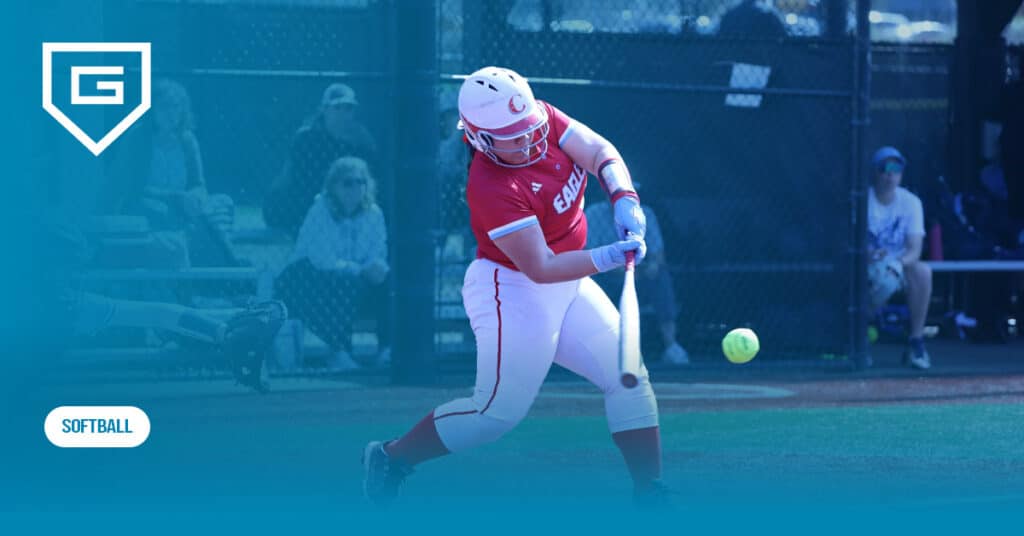How to Coach Football and Mentor Your Team to Success
Reading Time: 11 minutes
Reading Time: 11 minutes

Effective coaching in football is the foundation for building competitive teams, achieving goals, and fostering a lifelong passion for the sport.
Coaches are responsible for mentoring and showing their players what it means to be respectful, confident, and committed. Not just during football practice and games, but also in everyday life.
Advanced technologies like the GoRout football practice system have made team communication and practice planning more accessible than ever to help you enhance your football coaching career.
In this detailed guide, we will explain what being a good coach and mentor entails and how you can employ the GoRout coach-to-player communication system to improve your team’s performance and have a winning season.
The Fundamentals of Coaching
Coaching football is not only about strategizing on the sidelines or giving instructions during practice sessions. To excel as a football coach, you must understand the intricacies of the role, develop a strong coaching philosophy and embody key qualities that inspire and empower players.
Understanding the role of a football coach
The role of a football coach demands a combination of leadership, mentorship and effective communication. Football coaches inspire and guide their teams by leading by example with integrity and sportsmanship.
Football coaches develop game plans that show a team’s strengths and exploit opponents’ weaknesses.
Head coaches play a crucial role in players’ personal and professional development. They serve as mentors, offering guidance, support and encouragement to nurture growth and shape character on and off the field.
Importance of building a strong coaching philosophy
A coaching philosophy informs coaches’ decisions and influences interactions with players, staff and parents. It is a reflection of the head coach’s values and team vision.
A strong coaching philosophy provides clarity, direction, focus and consistency, enabling players to buy into the coach’s vision.
A well-defined coaching philosophy builds team culture while establishing norms and expectations of player behavior and attitudes. When players and coaches support the coaching philosophy, they form a collective identity and sense of purpose that strengthens their bond.
Key qualities of successful football coaches
Successful football coaches possess unique qualities essential for inspiring and empowering players. Key attributes of successful football coaches are:
- Leadership: Inspiring and motivating players through exemplary behavior, integrity and a strong work ethic.
- Tactical insight: Strategically analyzing opponents, devising game plans and making intelligent decisions to maximize team performance.
- Effective communication: Giving instructions, providing constructive feedback and fostering open dialogue with players, parents and other coaches.
- Lifelong learning: Continuously seeking opportunities for growth and improvement, staying updated on coaching methodologies and adapting to changes in the game.
- Emotional intelligence: Understanding the individual needs and motivations of players, demonstrating empathy, patience and compassion and fostering a culture of trust and respect.
By nurturing these qualities, football coaches can inspire greatness, build winning teams and leave lasting legacies.
Establishing a Strong Team Culture
As a football coach, it’s paramount to create a strong team culture with teamwork, discipline and resilience. This culture extends beyond wins and losses. It’s about fostering a sense of unity, pride and purpose among players for a team with the same principles and values.
Defining team values and principles
Team values – integrity, discipline, teamwork and resilience – are the foundation for a team’s identity, behavior and decision-making.
- Integrity ensures that players act honestly on and off the field.
- Discipline instills a strong work ethic that drives players to consistently strive for improvement.
- Teamwork relies on players working together towards a common goal.
- Resilience is essential for overcoming adversity and setbacks that inevitably arise in football.
Football coaches instill these principles to help players develop the mental strength and determination needed to bounce back from defeat and persevere through challenges.
Fostering camaraderie among players
Camaraderie creates a sense of connection, trust and mutual support among teammates. Football coaches can foster camaraderie by creating opportunities for players to bond and connect.
They can organize fun team-building activities such as group outings, team meals or bonding exercises during practice sessions.
Football coaches can also emphasize supporting and uplifting players during victories and defeats.
Building solid relationships enhances team chemistry and creates a sense of belonging and unity that helps their success.
Creating a positive and motivating team environment
A positive environment makes football more fun. It boosts performance and commitment to the team. The best way to increase positivity and motivation is through a supportive and inclusive team culture.
Football coaches create a positive team atmosphere by encouraging open communication and mutual respect. They create trust by allowing players to express themselves freely and openly voice their opinions.
Recognize and celebrate individual and team achievements. Set achievable goals and provide constructive feedback that helps players stay focused and committed to improving.
Player development strategies

Effective player development strategies enhance skills and performance. Personalized coaching techniques and skill-building drills for each position nurture growth and progression.
Balancing skill development and team cohesion is essential for creating a cohesive unit capable of competing at any level.
Individualized coaching techniques
Individualized football coaching techniques boost player development. They include recognizing a player’s strengths, weaknesses and learning style.
Football coaches use individual player assessments to pinpoint areas for improvement. They develop players through insights into their technical skills, tactical understanding, physical capabilities and mental resilience.
A one-on-one coaching experience gives players dedicated time with coaches to refine their techniques and address specific challenges. Football coaches provide players with immediate feedback to quickly correct errors.
Skill-building drills for different positions
Skill-building drills for each position focus on different abilities required on the field. These drills enhance technical proficiency, tactical awareness and physical attributes for each position.
Offensive position drills, like quarterback drills, emphasize passing accuracy, footwork and decision-making under pressure. Wide receiver drills improve route-running, catching consistency and creating separation from defenders.
Position-specific drills develop individual skills and contribute to understanding roles within the team. Football coaches use specific drills to optimize player development and enhance performance.
Balancing skill development and team cohesion
Balancing skill development and team cohesion nurtures player growth and creates cohesive teams.
To find the perfect balance between skill development and team cohesion, football coaches must recognize that individual player development contributes to the team’s success. They must strengthen bonds between players and promote a unified team identity.
Effective Communication Techniques
Effective communication is the core of the coaching experience. Coaches convey instructions, provide constructive feedback and foster open dialogue where players feel valued and understood.
Clear and concise communication with players
Coaches must articulate their messages clearly, using understandable language and avoiding ambiguity to minimize confusion.
Clear communication enables players to execute tasks precisely and confidently when delivering tactical instructions during a game, providing feedback during practice or discussing game methods off the field.
Concise communication delivers information efficiently, respecting players’ time and attention. Complex concepts become concise directives that keep players focused and engaged.
Handling feedback and constructive criticism
Coaches should approach feedback with purpose and clarity, motivating and empowering players rather than discouraging them. Coaches can inspire players to embrace challenges and strive for excellence by giving feedback as an opportunity for improvement.
Effective feedback provides specific, actionable guidance that helps players understand how to improve. Coaches should offer constructive criticism respectfully by acknowledging players’ efforts and strengths while identifying weaker areas.
Building trust and rapport with the team
Building trust and rapport means prioritizing open communication, consistency and leading by example. Foster trust by creating an atmosphere where players feel comfortable expressing themselves and providing feedback.
Actively listening to players’ concerns and ideas demonstrates respect and your willingness to communicate.
Consistency is key to building trust among players. When coaches uphold fair and transparent policies, consistently enforce team rules and provide equal opportunities for players, they earn the trust of their players.
Game Planning and Strategy
Game planning and strategy build situational awareness and strategic insight. Football coaches analyze opponents and write plays to devise game plans that leverage strengths and exploit opponents’ weaknesses.
Analyzing opponents and adapting strategies
Coaches study opponents’ strengths, weaknesses and tendencies through film analysis, scouting reports and statistical breakdowns. Football coaches use this info to make game plans and real-time adjustments based on in-game developments and unforeseen challenges.
Adapting strategies requires observation, rapid decision-making and effective communication with players. Coaches anticipate opponents’ adjustments and counter with innovative tactics.
The importance of situational awareness
Situational awareness means understanding the current game situation – score, time remaining, field position, down, distance and opponent tendencies.
Football coaches with heightened situational awareness can assess the game in real-time and capitalize on opportunities.
Having excellent situational awareness allows coaches to identify areas for improvement, develop long-term strategies and adapt to changing circumstances throughout a season.
Developing a playbook tailored to the team’s strengths
Coaches carefully assess their roster’s skills, athleticism and football IQ to identify advantages and design offensive and defense schemes that optimize performance.
A tailored football playbook can build confidence and increase competitiveness on the field. A customized game plan fosters cohesive team identity and culture, reinforcing commitment to achieving shared goals.
Incorporating Technology in Coaching
Incorporating technology in coaching football has transformed the game, empowering coaches with advanced tools and resources to enhance player performance, strategic planning and game management.
Technology provides invaluable insights into player development and improves team communication with football practice and in-game solutions.
Overview of technological tools for football coaching
Modern technological tools for a football coaching career include video analysis software, allowing coaches to dissect game footage and analyze player performance precisely.
Wearable tracking devices provide real-time data on players’ physical metrics, enabling coaches to optimize training regimens and monitor player health.
Advanced scouting software offers detailed insights into opponents’ formations, tendencies and play calling strategies.
Digital playbook platforms streamline the creation and distribution of game plans. This technology is imperative for football coaches today.
Benefits of integrating technology into practice sessions
- Enhanced player development: Technology provides instant feedback and analysis tools, allowing players to review their performance, identify improvement areas, and make real-time adjustments. Wearable tracking devices monitor physical metrics, optimize training regimens and minimize the risk of injuries.
- Improved efficiency and communication: Coach-to-player communication systems like GoRout technology facilitate communication among coaches and players. Coaches can easily create, store and share playbooks and practice plans so players can receive and execute instructions on the field.
- Immersive learning experiences: Interactive training tools and simulation software offer immersive learning experiences. It improves decision-making and situational awareness on the field, leading to effective performance during games.
Challenges with technology integrations
- Technical issues: Technology systems may encounter technical glitches, connectivity issues or compatibility problems, especially with Wi-Fi.
- Cost: Technology solutions can be costly, requiring investment in equipment, software licenses, and ongoing maintenance.
- Privacy and security concerns: Storing and sharing sensitive data, such as player performance metrics or scouting reports through technology platforms, may raise privacy and security concerns.
It’s important to avoid these challenges with the right technology.
That’s where GoRout comes in.
Introducing the GoRout Football Practice System

GoRout offers a cutting-edge football practice system to revolutionize how teams train and prepare for game day.
With a commitment to innovation and excellence, GoRout provides coaches and players with the tools they need to enhance communication, streamline practices and maximize performance on the field.
Our coach-to-player communication system provides solutions tailored to meet football teams’ unique needs and challenges at every level – NFL, college or high school.
Teams can triple their football practice reps in any condition with our rugged wearable devices.
Features that make GoRout invaluable for coaches
1. Scripting app

- Our scripting tool revolutionizes play organization with just a few clicks.
- Compatible with any card drawing software, it simplifies adding, editing, and moving plays.
- Coaches can seamlessly coordinate strategies from quarter to quarter, enhancing efficiency and organization.
2. On-Field Practice App

- The on-field practice app optimizes communication during practices utilizing GoRout STEEL technology.
- Coaches can instantly flip formations, flag plays for review and edit cards in real-time.
- The app ensures players receive clear instructions that maximize effectiveness in various practice periods.
3. Player Devices

- Our football equipment withstands tough practices as the most rugged wearable technology in sports.
- Coaches select their practice and the plays are then sent directly to the player’s device.
- Players receive visual play drawings and position-specific messaging, enhancing on-field performance and preparedness.
Benefits of the GoRout football practice system
- Made by experienced sports coaches: GoRout is a communication tool designed by coaches who understand the demands of sports, tailored to meet the needs and challenges faced by coaches and players.
- GoRout Air™: It doesn’t need Wi-Fi connection to work. GoRout uses a proprietary networking system powered by a national infrastructure that allows the coaches app and devices to communicate via radio airwaves across the US.
- Triple your team’s reps: Teams achieve an average of 2.5 reps per minute using GoRout, accelerating skill development and providing coaches with additional time for instruction while offering players increased opportunities for skill development.
- Adaptability to weather conditions: GoRout’s rugged devices operate effectively in diverse weather conditions, ensuring consistent performance regardless of high temperatures, humidity, snow, rain or other environmental factors.
- Comprehensive warranty: Every GoRout device comes with a comprehensive 100% full-coverage warranty, safeguarding against breakage and instilling confidence in the user.
Experience GoRout football practice today to see what the hype is all about or get a quote now.
Maximizing Practice Efficiency with GoRout

How GoRout streamlines practice sessions
GoRout systems streamline practice sessions with more reps and better coach-to-player communication. Quicker practice reps mean more time for coaches to teach and players to develop their skills on the field.
Creating practice scenarios
Use our advanced system to create and upload customized scout cards. Scripting on our platform is designed to be fully compatible with any play drawing tool. Effortlessly design plays by copying, moving and flipping plays from one period to another with ease.
Tracking player performance and progress
Tracking progress is made easy with robust integration of video technology with streamlined practice communication devices. This cooperation allows coaches to track performance and develop player skills through both video and communication.
Testimonials and Success Stories

Below are testimonials from coaches who benefited from GoRout coach-to-player communication systems.
Indiana University
“GoRout has helped us practice more efficiently in many ways. Our process is very, very efficient with this technology. It allows our offense and defense to get many more reps in, and our communication is extremely improved because of the GoRout system. We love it!”
– Tom Allen, Defensive Coordinator, Penn State
University of South Alabama
“GoRout is a tremendous resource. When you think about the finite time you have in practice, the hardest thing to do is be most efficient and operate consistently with your scout team. With the click of a button, we can send all 11 guys spread out on the field to look and focus on what we want to focus on without holding up a card.”
– Kane Wommack, Defensive Coordinator, Alabama
Round Rock High Schools
“GoRout has transformed our practices and our weekend work schedule. With a season under our belts using GoRout, we have gained time in areas of our practice schedule that benefit us tremendously.”
– Coach Cody Moore
Conclusion on How to Coach Football
A coaching career journey requires key elements like communication, culture, game planning and new technology to take players to the next level.
Mentorship and continuous improvement are vital when forming a successful coaching philosophy. These practices leave a team learning and optimistic about achieving their goals.
Innovative coaching tools like GoRout technology make it possible to practice more effectively, saving time and creating more learning opportunities for your team.
Get a quote and level up your practices with the best technology in football.
FAQs on How to Coach Football
How do I start a coaching career?
If you know a head coach, you can get a job as an assistant coach or volunteer to learn the ropes and start a coaching career. If you were a former college or pro player, you may not need as much experience coaching.
How do you coach football with no experience?
Teams with young players might not require a coach to have coaching experience. Attending football coaching clinics or camps is important for networking and building relationships with other coaches and teams.
What do you need to coach football?
High school football coaches must have a bachelor’s degree in sports education or a related field. Some younger teams don’t require a degree, but they may allow parents, teachers, or students with a strong coaching philosophy to teach young players.
How to coach football for dummies?
There is a comprehensive guide that teaches how to coach football for dummies. This book has knowledge and tips about developing a coaching philosophy, football fundamentals, good sportsmanship tips, safety expectations and communication with parents.







